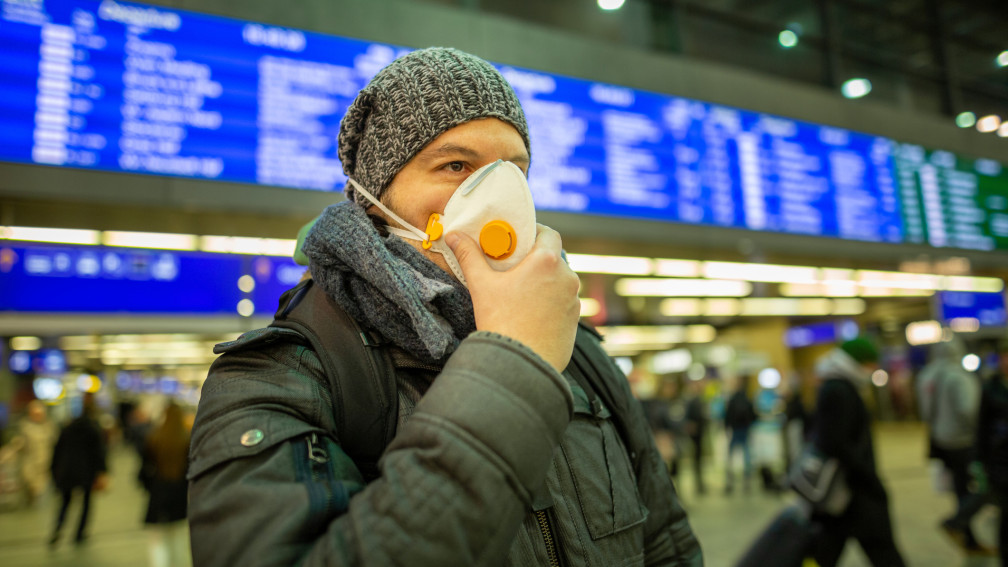
Coronavirus: Swiss government declares “extraordinary situation”
On March 16th, the Federal Council has declared that an ‘extraordinary situation’ now exists in Switzerland. Shops and schools are closed until April 19th and checks on the borders have been reintroduced.
In view of the accelerated spread of the coronavirus, the Federal Council took the decision, on 16 March 2020, to introduce more stringent measures to protect the public. It has declared that an ‘extraordinary situation’ now exists in Switzerland in terms of the Epidemics Act. The main goal of the measures is to slow down the infection rate for the medical system to cope with the rising severe COVID-19 cases and to maintain a minimum level of health service for the entire population. To this end, the Swiss government has also mobilised up to 8000 members of the armed forces to assist with healthcare, logistics and security.
As of 17 March, all public and private events are prohibited in Switzerland. All shops, markets, restaurants, bars and entertainment and leisure facilities, such as museums, libraries, cinemas, concert halls and theatres, sports centres, swimming pools and ski areas are closed. Also affected are businesses at which the recommended distance of 2 m. cannot be maintained, such as hairdressers and cosmetics studios.
No shortage of food, medicinal products and essential everyday items
The Swiss government assured that there are enough stocks to provide the entire population with foodstuffs, medicinal products and essential everyday items over a long period. Food stores, takeaway businesses, company canteens, food home delivery services and pharmacies remain open, as will petrol stations, railway stations, banks, post offices, hotels, public administrations and social institutions. Maintenance facilities for means of transport may remain open. However, all these establishments must follow the recommendations of the Federal Office of Public Health on hygiene and keeping your distance. Hospitals, clinics and medical practices will remain open, but must forego non-urgent medical procedures and treatments. People at especially high risk should work from home. If that is not possible, they are to be placed on leave by their employers but will continue to receive their pay.
Infrastructures are also running smoothly, although public transportation has been reduced and Swiss airline is only operating at 20% of its usual capacity. Lufthansa Group has announced that international flights will be limited to the airports of Frankfurt and Zurich (operated by Swiss).
Schools closed until 19 April
All education facilities are closed as well. However, the cantons are required to ensure that childcare is provided for children who cannot be looked after privately. Child day-care facilities may only be closed if other suitable arrangements exist. This measure will apply for the time being until 19 April. School closures will also now apply until this date.
Border checks
In addition, checks at the borders with Germany, Austria and France have been introduced and entry bans imposed, albeit with exceptions. Already since Friday 13 March, Schengen border controls on persons entering from Italy are applied. Entry to Switzerland from its four large neighbours is now only possible for Swiss citizens, persons holding a residence permit for Switzerland and persons who must enter Switzerland for work-related reasons. Transit and goods traffic will continue to be allowed as well. Lastly, people will also be able to enter Switzerland in emergency situations. These measures are intended to protect the Swiss population and maintain capacities in the Swiss health service. In order to implement these measures in a targeted manner, smaller border crossings around the country have been closed and cross-border traffic channelled through larger crossings. A list of these crossings will be published by the Federal Customs Administration. The effect of the reintroduction of border checks is evident by long ques of cross border workers entering Switzerland in the morning with waiting periods up to one hour. 320’000 EU-citizens normally cross the Swiss border every day for work purposes. As many companies are applying home office where possible, cross border traffic has been reduced by 25% already.
Ways to limit the negative impact on business
Swiss business is supporting the measures put in place by the Swiss government. They are necessary to avoid a collapse of the national health system by too many critically ill Corona patients. However, the population and business are heavily hit by the measures.
economiesuisse welcomes that the federal government wants to extend the instrument of compensation for short time work for companies in difficulties. Additionally, economiesuisse urges the Federal Council to rapidly activate the loan guarantee cooperatives, which are supported by the federal government and facilitate SMEs access to bank credits because these organisations can provide the banks with guarantees. These cooperatives guarantee loans of up to 1 million CHF. The Confederation insures up to 65% of the associated risk of loss. The authorities also pay a proportion of their administrative costs. This scheme shall be made available to SMEs who are particularly hit by the effects of the Corona virus. In addition to this, companies should be given the possibility to delay payments to the authorities in order to avoid bankruptcy of otherwise solvent enterprises.
For business it is essential that the supply from abroad of raw materials, wholesale products and final goods is guaranteed. Goods transports must continue to cross the borders without further hinderance. economiesuisse welcomes the decision of the Swiss government not to foresee any restrictions in this area and to coordinate cross border exchange of goods closely with the EU. The decided border checks for persons and closures of smaller border crossings must not lead to delays in the handling of goods.
Companies without contact to the public shall be able to continue to operate as long as the hygiene and safety procedures are being respected. Thus. the negative impact on the economy as a whole can be limited to a minimum.









